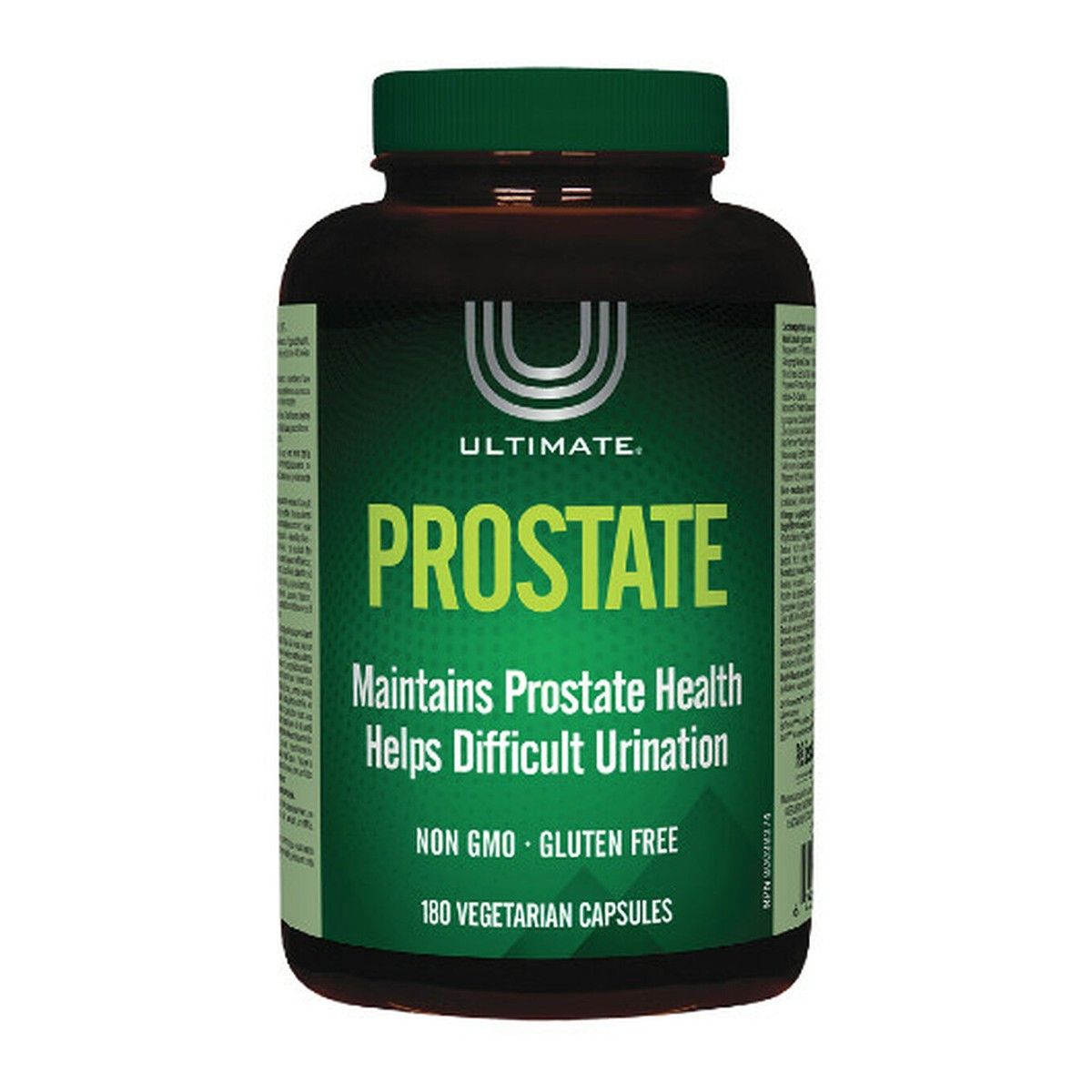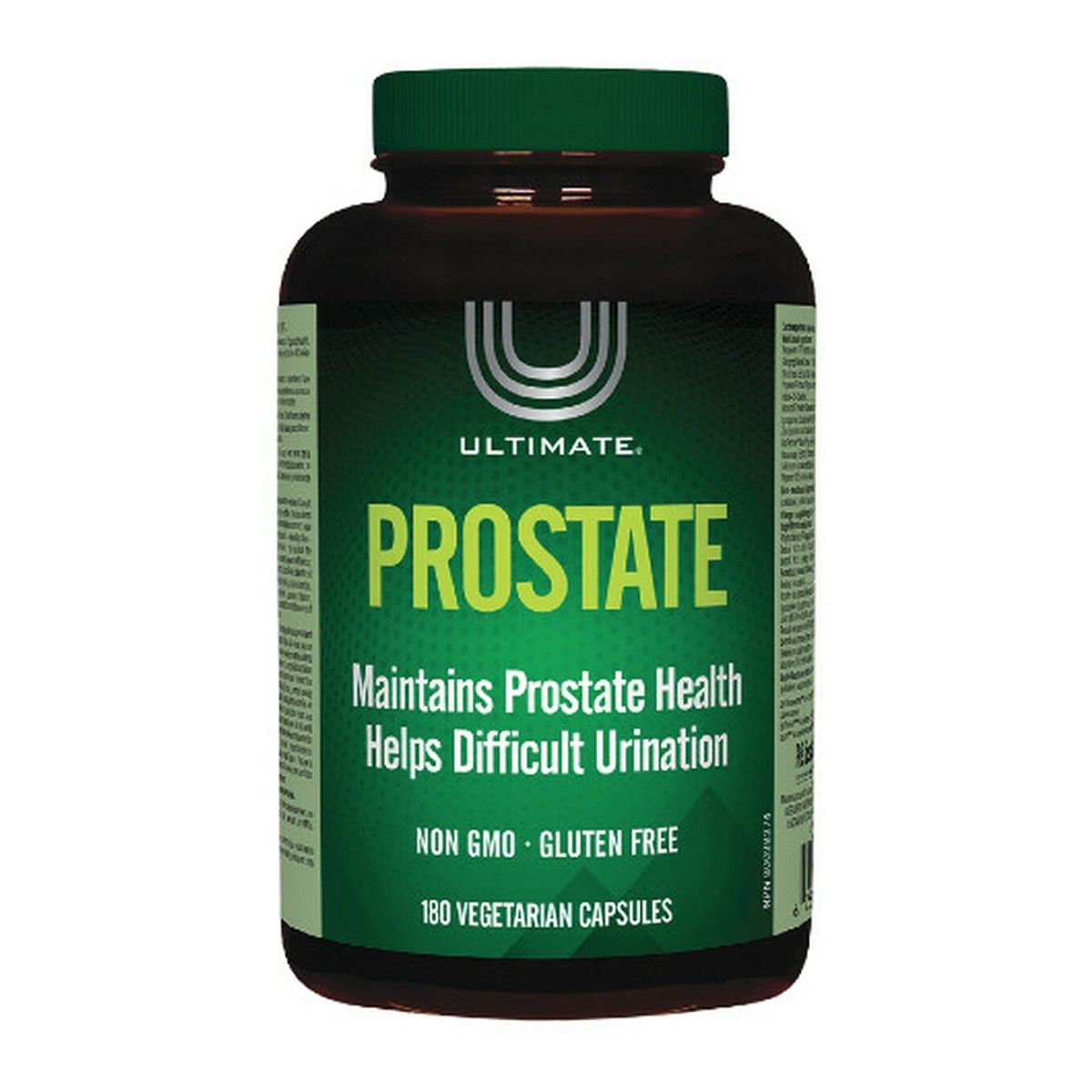Prostate 180 Vcaps
Prostate 180 Vcaps
Benign prostatic hyperplasia (BPH), defined as the enlargement or swelling of the prostate gland, is one of the most common health problems faced by men. Over 50% of men age 50 and over suffer from BPH, and almost 100% of men over the age of 80 can expect to develop this condition. Prostate enlargement and symptoms of BPH are influenced by hormonal, inflammatory, and nutritional factors.
Androgens (male hormones) play a critical role in the development of BPH. Specifically, dihydrotestosterone (DHT), the active metabolite of testosterone, causes the prostate gland to enlarge. Beta-sitosterol is a plant sterol that supports healthy prostate function. It works by inhibiting the enzyme 5-alpha reductase that is responsible for converting testosterone to DHT. A six-month placebo-controlled trial of men with BPH found that supplementation with 130 mg of beta-sitosterol per day significantly improved international prostate symptom scores (IPSS) by 51%, compared with only 19% for the placebo. Supplementation also improved measures of quality of life, peak urinary flow rate, and post-void residual urinary volume.
Pygeum (Pygeum africanum) bark and stinging nettle (Urtica dioica) root extracts are additional sources of beta-sitosterol that have been used successfully to reduce symptoms of BPH, such as weak urine flow and incomplete voiding of urine. A review of 18 controlled clinical trials found that men taking Pygeum extract were more than twice as likely as placebo groups to experience improved BPH symptoms. Overall, the studies found that Pygeum reduced nocturia by 19%, reduced residual urine volume by 24%, and increased peak urine flow by 23%.
A six-month placebo-controlled trial found that 81% of BPH patients who were supplemented with 360 mg of stinging nettle extract per day had improved lower urinary tract symptoms compared to 16% of the placebo group. Patients experienced a 77% improvement in peak urine flow rates and a modest reduction in prostate size. Vitamin D3 intake is positively associated with a lower rate of BPH because of its role in inhibiting the hormonal aspects of its development. Preclinical trials have demonstrated that supplementation with vitamin D3 can also help decrease existing BPH cell growth.
Inflammation contributes to the development of BPH and at chronic levels may progress BPH to the stage of disease. Ultimate Prostate combines multiple antioxidant and anti-inflammatory ingredients, including lycopene, selenium, rosemary extract, and rye pollen. (2) Carnosol and carnosic acid, the main antioxidant compounds in rosemary, have been demonstrated through animal studies to provide an anticarcinogenic influence on prostate cells.
Pollen extract is a mixture of natural anti-inflammatory compounds that inhibit the synthesis of signalling molecules and mediators of inflammation. Supplementation has been shown to improve quality of life and reduce pain in patients affected by chronic pelvic pain syndrome and chronic prostate inflammation.
Eating a diet rich in fruits and vegetables provides the nutrients lycopene and zinc, which are critical to protecting overall prostate health. Cruciferous vegetables, such as broccoli, are particularly important sources of the anti-carcinogenic compounds indole- 3-carbinol and sulforaphane, which help protect against prostate disease.
BioPerine black pepper extract is standardized to 95% piperine, an active alkaloid that improves the bioavailability of nutrients that may otherwise be difficult to absorb.
🇨🇦 Made In Canada
Share


